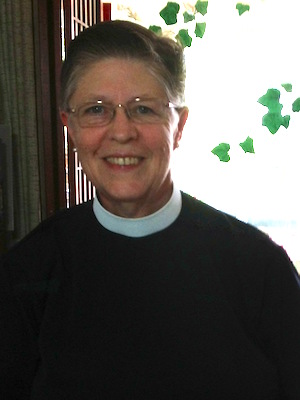What aspect of the women’s ordination movement do you most want Episcopalians today to remember and honor?

Memory is a strange phenomena. We humans tend to forget or ignore some very important parts of our story. As a young person, I discovered that women in ministry as deaconesses served many of those places, hardship places, unable to have the ministry of a priest. They married, baptized, buried and gave out the Sacrament to those in difficult-to-reach places such as Appalachia. They taught in schools and cared for the ill. They also served overseas in China and Japan. As I met some of these foremothers, I was impressed by their faith and devotion.
I also learned that many Episcopalians really did not know about this ministry. I also began to hear that this ministry was not valued, as it was women who did this work. When Bishop Pike ordained a woman a deacon, Phyllis Edwards, he was attacked and brought up on charges of heresy. Women were thought of as being something less than the value of men by the Church. This was not what I heard from the gospels and it made me angry at being thought less of than my brothers. I had also heard of the Chinese woman ordained as a priest by Anglican bishop during WWII.
The ordination of women to the priesthood was not only the next logical step, it seemed to be needed in many instances. The Church has been irrevocably changed for the better by women in the priesthood and in the episcopate. The creative energies of women, lay and ordained, have reached across many chasms to raise the visibility of the poor around the world. Driven by God’s Holy Spirit into the dark places wherever they exist, women have revitalized the Church and brought the world’s needs into the open to be attended to. The ordination of women in the Episcopal Church calls all of us to take seriously our baptisms as Christ’s people in the world and to make a difference.


